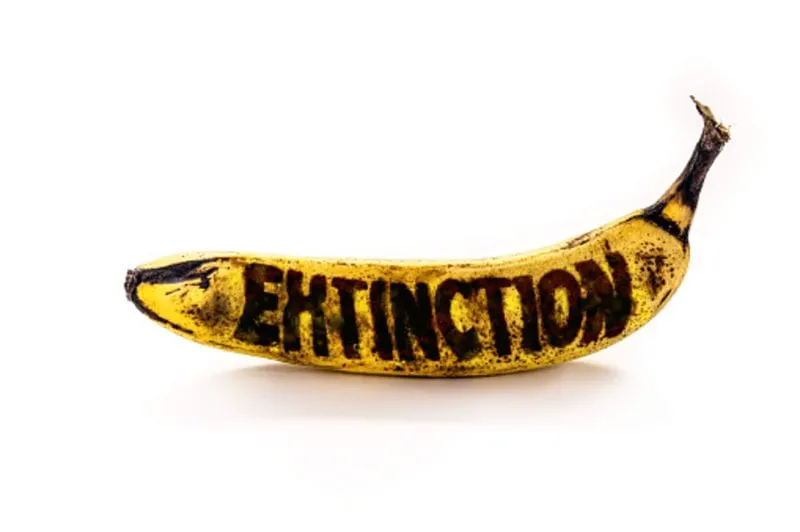The world’s most popular banana variety is under threat of extinction — and genetic engineering solutions are blocked. Here are alternatives.
The world’s most popular banana variety is under threat of extinction — and genetic engineering solutions are blocked. Here are alternatives.


Since the 1990s a new strain of the fungus TR1 (or panama disease), which wiped out the Gros Michel banana in the 1950s, has threatened to destroy the Cavendish variety, which represents close to 50% of the world production of bananas.
The solution, therefore, is to promote diversity. [Banana Program Leader at Bioversity International Nicolas] Roux is calling for standardized protocols to be developed to screen all possible germplasm, with a priority on the most consumed edible cultivars (dessert bananas, plantains, etc.). Preliminary results, for example, show that several wild relatives have the genes of resistance to TR4. Classical or mutation breeding to develop a new variety that is resistant to TR4 but also accepted by the consumer, the farmer and all actors along the value chain, might take up to 10-15 years.
Other new unconventional approaches such as genetic transformation (GMO) or more recently gene editing are promising, he added, but not widely accepted. “As we are not sure that other approaches will give results, we need to investigate these new techniques at least at the research level in parallel, as they also help us better understand the genetics and biology of this very complicated crop.”
This is an excerpt. Read the original post here.

 | Videos | More... |

Video: Nuclear energy will destroy us? Global warming is an existential threat? Chemicals are massacring bees? Donate to the Green Industrial Complex!
 | Bees & Pollinators | More... |

GLP podcast: Science journalism is a mess. Here’s how to fix it

Mosquito massacre: Can we safely tackle malaria with a CRISPR gene drive?

Are we facing an ‘Insect Apocalypse’ caused by ‘intensive, industrial’ farming and agricultural chemicals? The media say yes; Science says ‘no’
 | Infographics | More... |

Infographic: Global regulatory and health research agencies on whether glyphosate causes cancer
 | GMO FAQs | More... |

Why is there controversy over GMO foods but not GMO drugs?

How are GMOs labeled around the world?

How does genetic engineering differ from conventional breeding?
 | GLP Profiles | More... |

Alex Jones: Right-wing conspiracy theorist stokes fear of GMOs, pesticides to sell ‘health supplements’




 Viewpoint — Fact checking MAHA mythmakers: How wellness influencers and RFK, Jr. undermine American science and health
Viewpoint — Fact checking MAHA mythmakers: How wellness influencers and RFK, Jr. undermine American science and health Viewpoint: Video — Big Solar is gobbling up productive agricultural land and hurting farmers yet providing little energy or sustainabilty gains
Viewpoint: Video — Big Solar is gobbling up productive agricultural land and hurting farmers yet providing little energy or sustainabilty gains Trust issues: What happens when therapists use ChatGPT?
Trust issues: What happens when therapists use ChatGPT? Fighting deforestation with CO2: Biotechnology breakthrough creates sustainable palm oil alternative for cosmetics
Fighting deforestation with CO2: Biotechnology breakthrough creates sustainable palm oil alternative for cosmetics California, Washington, Oregon forge immunization alliance to safeguard vaccine access against federal undermining
California, Washington, Oregon forge immunization alliance to safeguard vaccine access against federal undermining 30-year-old tomato line shows genetic resistance to devastating virus
30-year-old tomato line shows genetic resistance to devastating virus The free-range chicken dilemma: Better for birds, but with substantial costs
The free-range chicken dilemma: Better for birds, but with substantial costs ‘You have to treat the brain first’: Rethinking chronic pain with Sanjay Gupta
‘You have to treat the brain first’: Rethinking chronic pain with Sanjay Gupta
